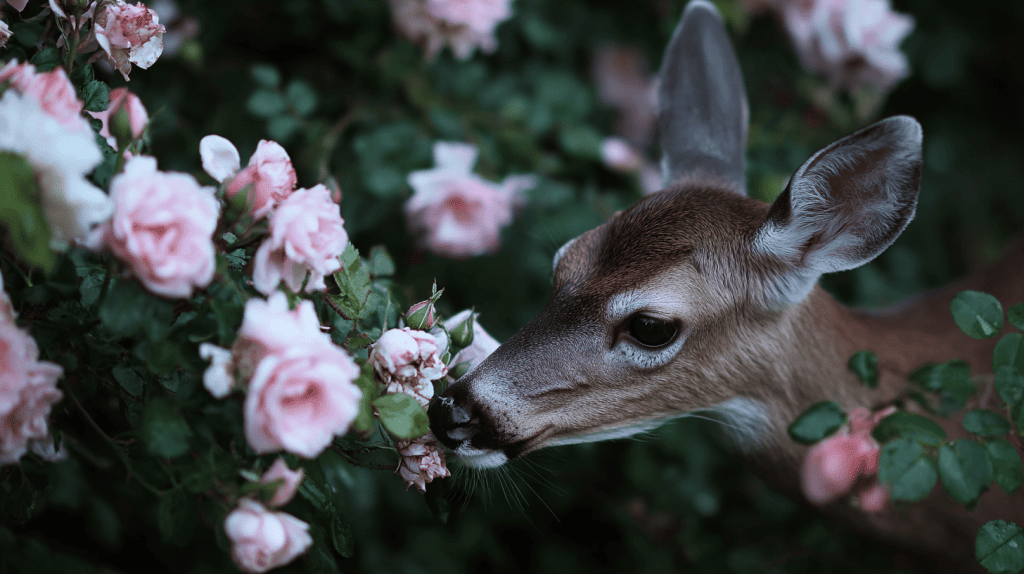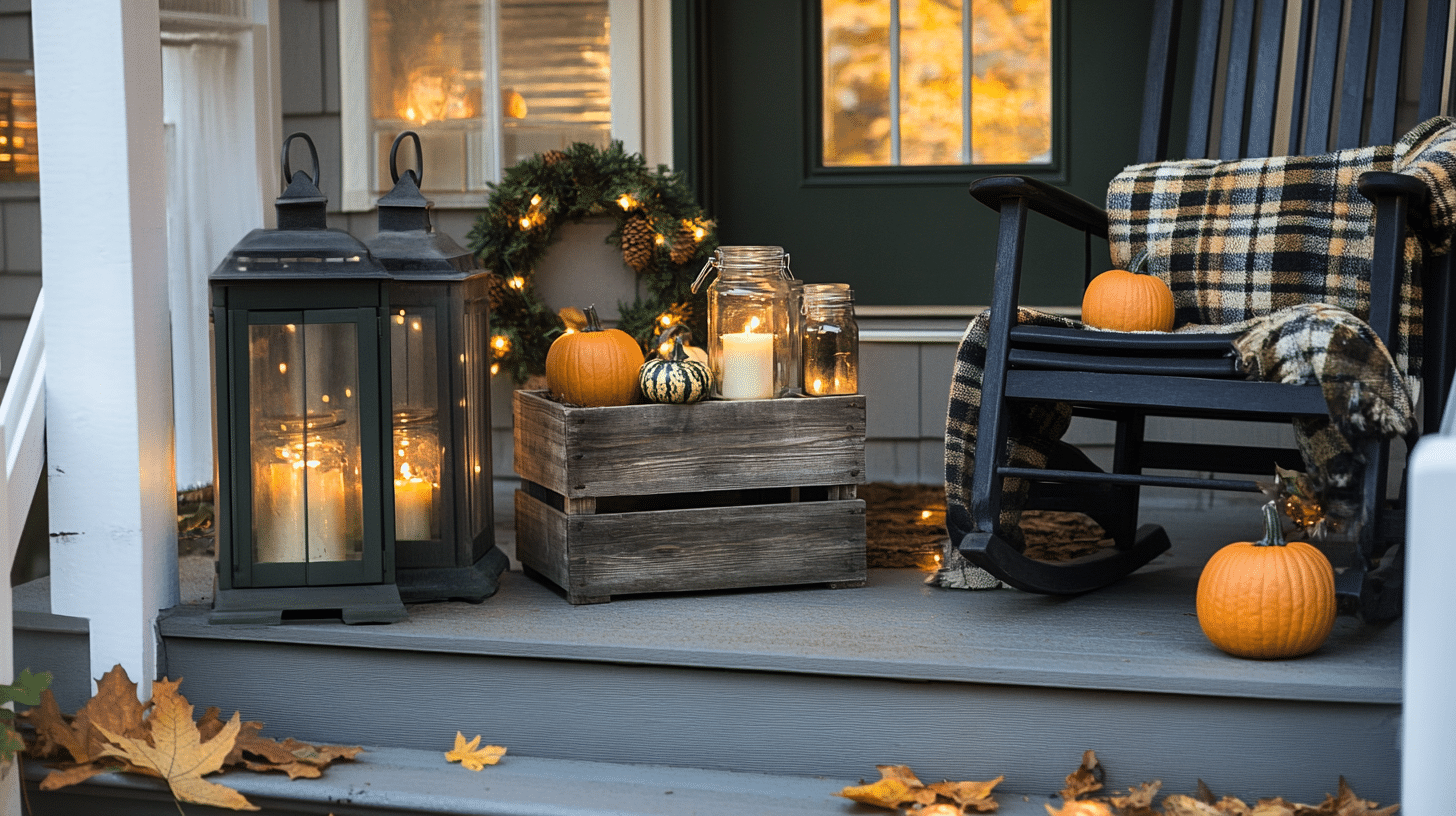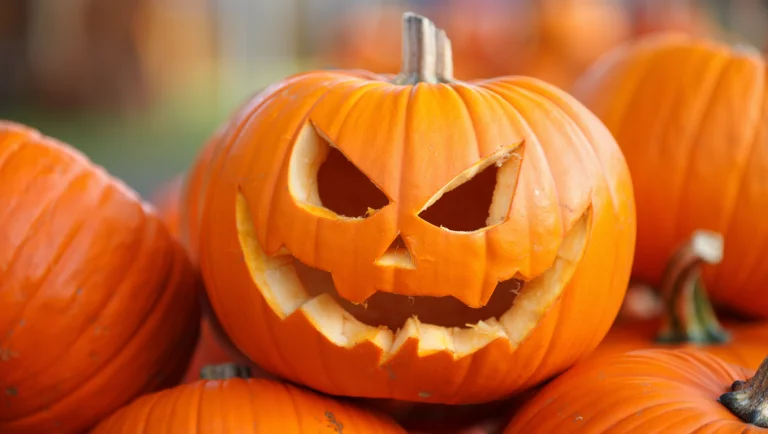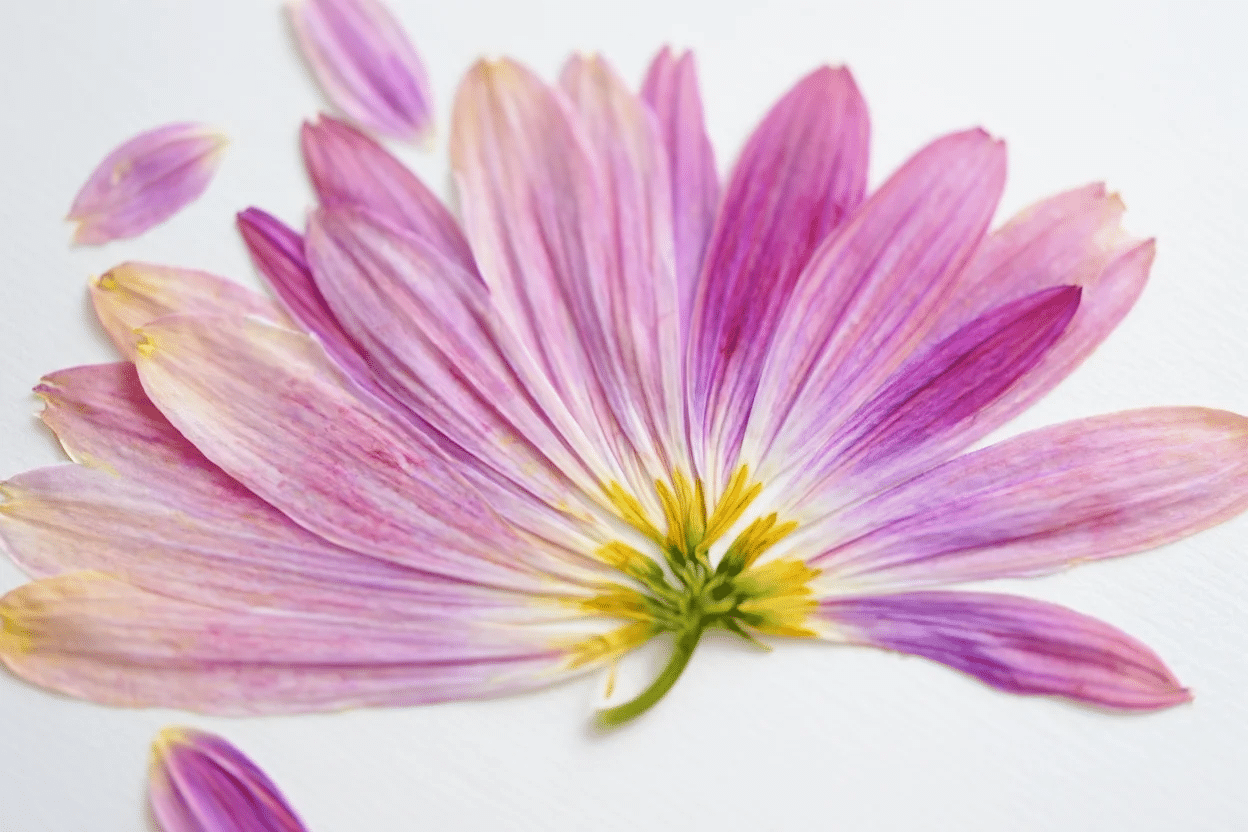I’ve often walked outside in the morning, only to notice that my favorite plants were chewed overnight. Maybe you’ve seen the same: leaves missing, buds stripped, stems half-broken.
Questions naturally follow. Gardeners often ask, Do deer eat lilacs? And from there, another worry comes quickly: what about rose bushes?
Deer have long been known to wander through yards and sample whatever looks tender and green, from new shrubs to flowering plants. They don’t always follow the rules of what gardeners expect them to leave alone.
For you, this raises a bigger challenge: how can roses survive in spaces where deer are common?
This guide looks at the deer habits, the kinds of roses that can stand up to browsing, and smart ways to protect them.
Why Deer Love Rose Bushes and What Damage They Cause
Roses are often irresistible to deer. While thorns might seem like protection, they don’t deter a hungry browser.
Deer, especially in spring and summer, seek out the fresh new growth, soft buds, and tender shoots of rose bushes. Even the thorny canes can be nibbled when food is scarce.
Damage from deer is easy to spot. Rose bushes may have stripped buds, jagged leaves, and stems broken in half. Unlike insect bites, the chewing is uneven and obvious.
When browsing repeats, it takes a toll, roses bloom less, stems weaken, and the plant struggles to mature properly. In some cases, young rose bushes may take entire seasons to recover.
Deer-Resistant Rose Varieties to Consider
Although no rose is completely deer-proof, some varieties fare better than others thanks to thorns, thicker stems, or natural fragrance. Gardeners looking for lower-risk options often choose:
1. Rugosa Roses
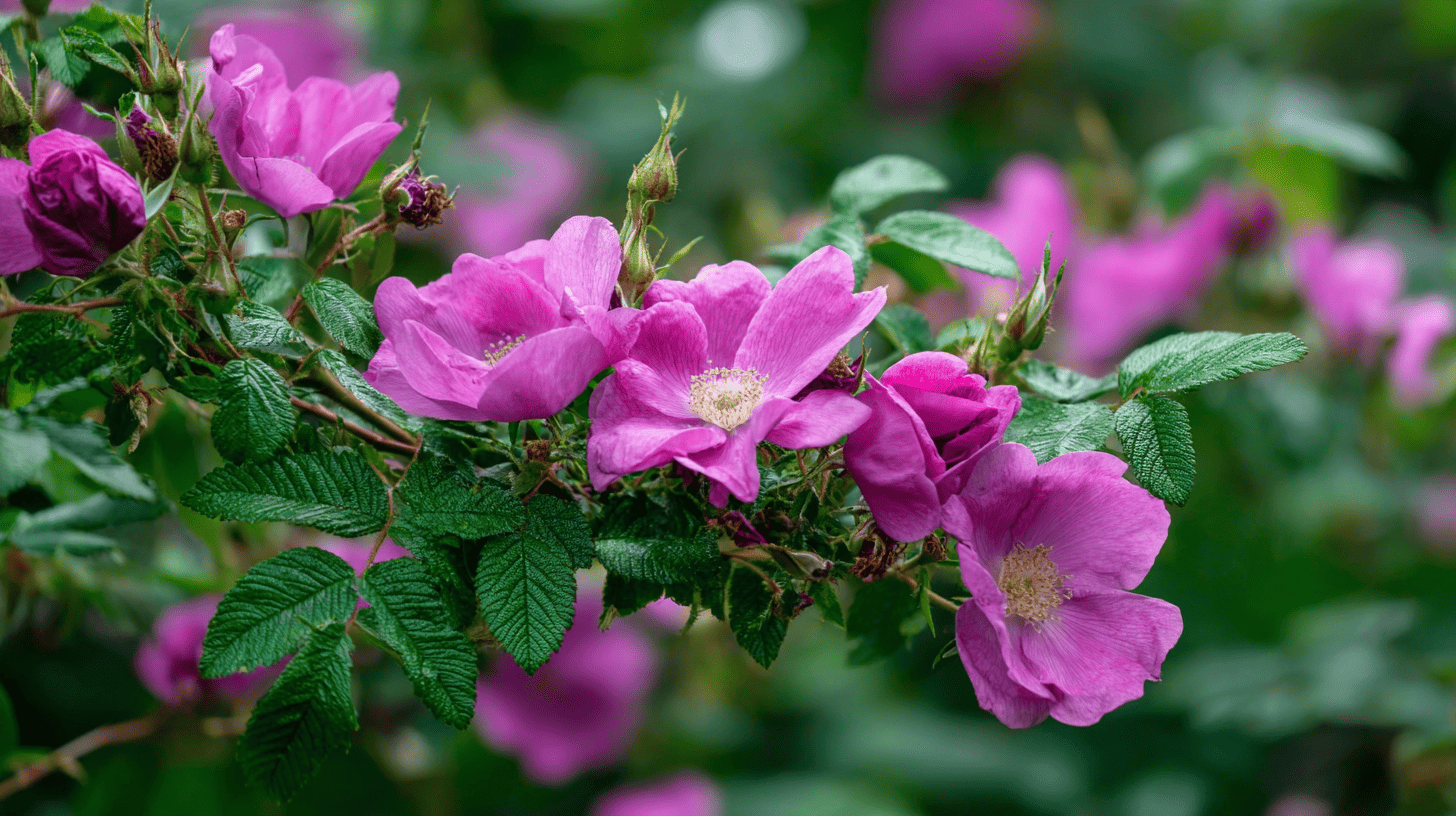
Rugosa roses are highly valued for their resilience. With dense, extremely thorny canes, leathery leaves, and a strong fragrance, they are far less appealing to deer.
These hardy shrubs tolerate poor soils, salty conditions, and cold climates, making them an excellent choice for low-maintenance, deer-resistant gardens with reliable seasonal blooms.
2. Knockout Roses
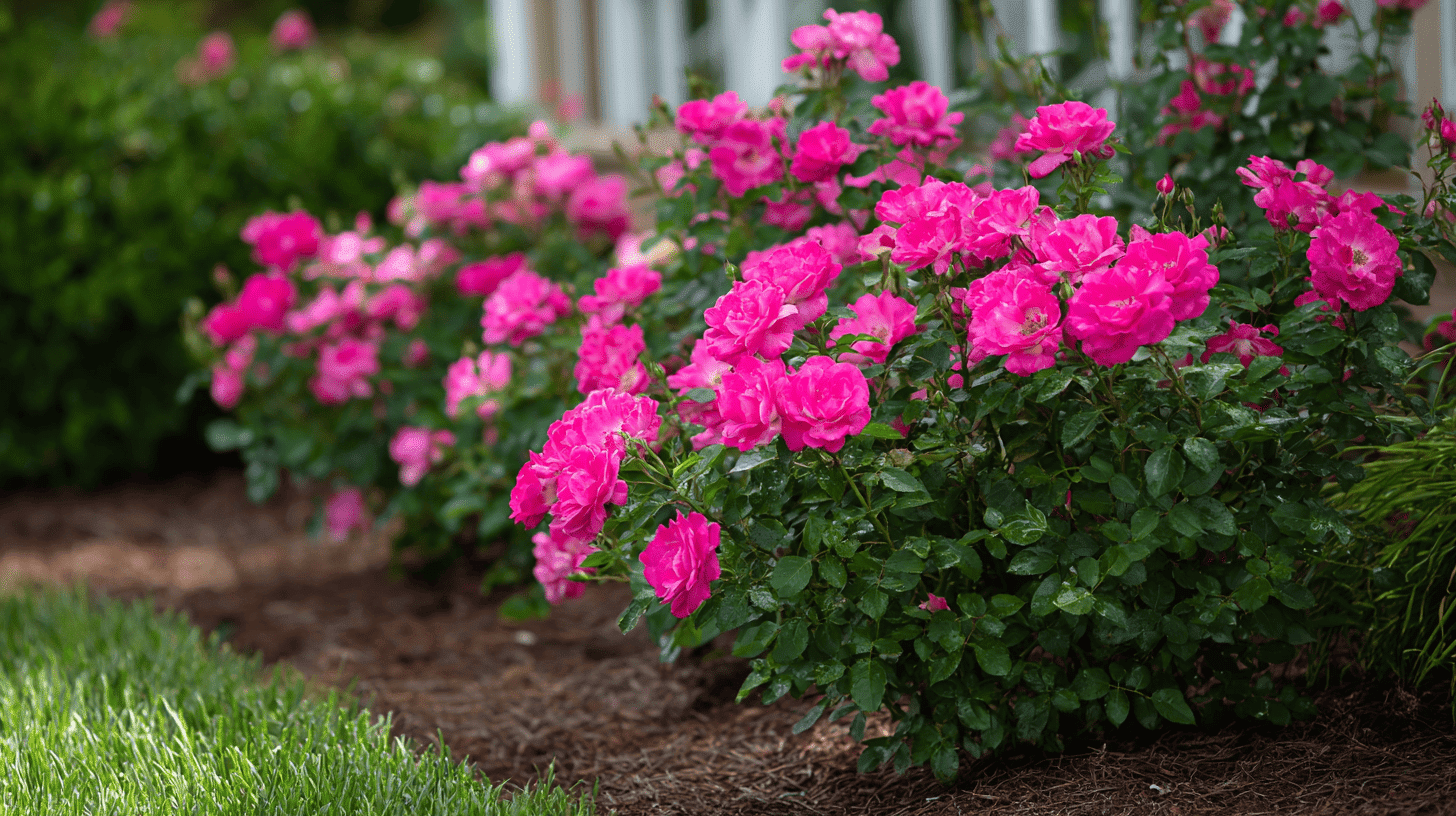
Knockout roses are among the most popular modern roses, loved for their hardy nature and continuous blooms.
Known for strong disease resistance and adaptability, they recover quickly even after stress or light browsing.
Their compact, bushy growth makes them easier to protect while still producing vibrant, showy flowers throughout the season.
3. Species Roses
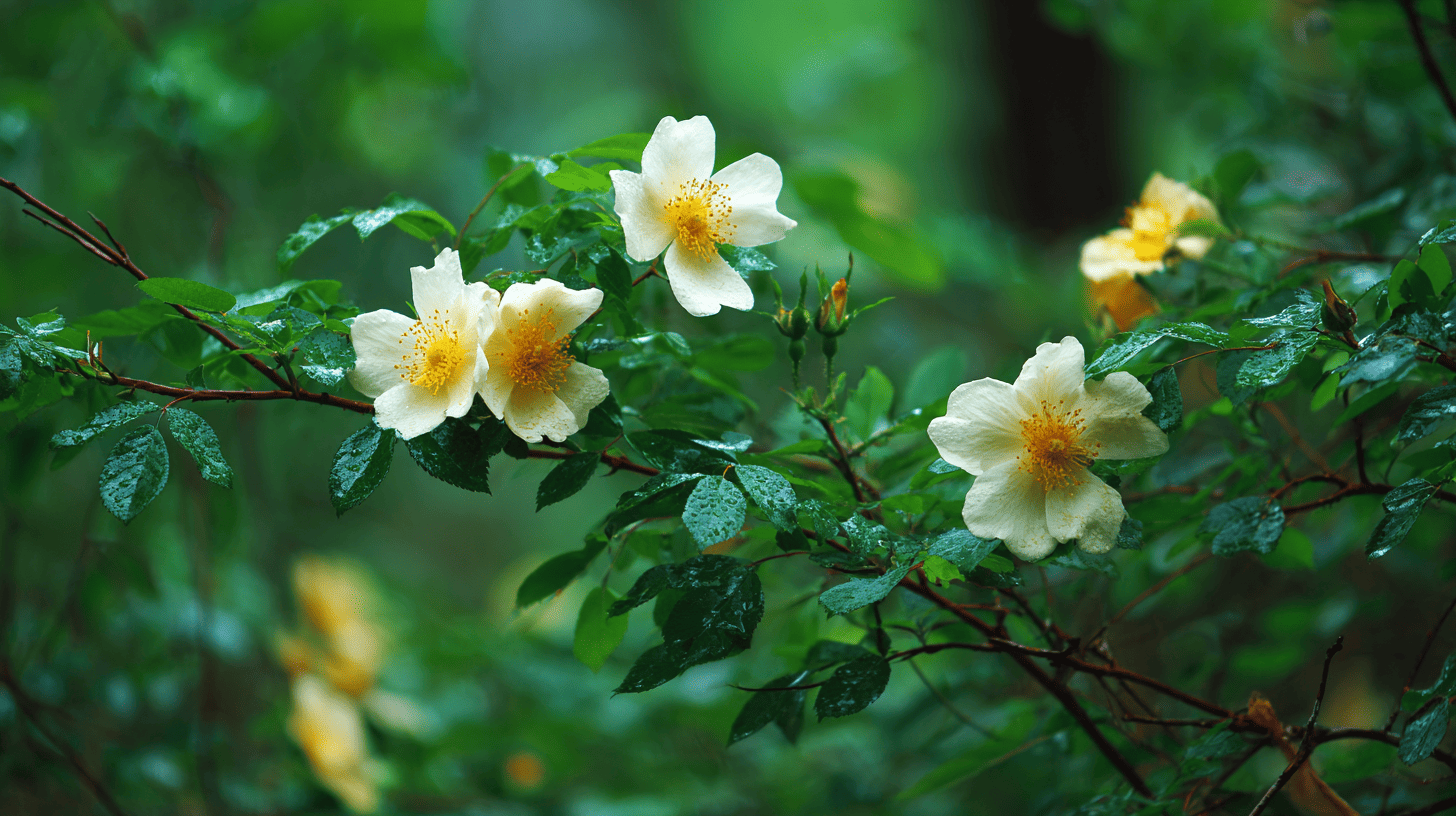
Species roses like Virginia rose and swamp rose are naturally tough and adapted to local conditions. They feature coarse foliage, dense thorns, and simple but charming blossoms that deter browsing animals.
Built-in defenses and strong root systems make them resilient options for gardeners seeking beauty and durability against deer damage.
Practical Tips for Protecting Rose Bushes From Deer
Choosing resistant roses helps, but extra protection is often necessary in deer-heavy areas. Here are proven methods:
- Physical Barriers: Tall fencing, 7–8 feet, is the most reliable for keeping deer out. For smaller yards, mesh cages or netting around a bush protect tender shoots.
- Repellents: Commercial sprays and homemade mixes using garlic, pepper, or even soap create smells or flavors deer dislike. These must be reapplied after rain.
- Companion Planting: Deer avoid strong-scented plants like lavender, sage, rosemary, and marigolds. Planting these near roses creates a natural deterrent.
- Seasonal Protection: In late winter and spring, browsing tends to spike. Temporary barriers like burlap wraps or motion-activated devices keep roses safe during peak feeding times.
Combining these techniques, rather than relying on just one, works best for long-term protection.
Caring for Rose Bushes After Deer Damage
If damage has already been done, don’t give up. Rose bushes can usually bounce back with targeted care:
- Pruning: Trim chewed stems back to a healthy bud. Clean cuts help roses heal and direct energy into new shoots.
- Feeding and Watering: Apply a light, balanced fertilizer to encourage fresh growth. Deep, steady watering supports recovery.
- Boosting Recovery: Gardeners often use growth supplements like seaweed extracts or tonics to encourage quick regrowth after stress.
The key is consistency. With regular care, most roses rebound within weeks, and healthier plants are less vulnerable to repeated browsing.
Wrapping it Up
Roses stand out as one of the most beloved plants in any garden, but that also makes them a favorite target for deer.
While thorny canes and fragrant blooms might offer some defense, hungry browsers usually find a way.
The good news is you’re not powerless.
By selecting resilient varieties like Rugosas or Knockouts, and reinforcing them with fencing, repellents, and simple care techniques, you can enjoy the beauty of roses without constant losses.
With careful planning and consistent attention, your rose bushes can remain healthy, flower richly, and bring years of color and fragrance, even in deer-prone areas.
Frequently Asked Questions
Do Deer Prefer Some Roses Over Others?
Yes, tender hybrid tea roses and new shoots are especially appealing, while Rugosas and species roses are usually less damaged.
Can Deer Damage Kill a Rose Bush?
Repeated browsing can weaken or stunt a young shrub, but established roses often recover if cared for properly.
What’s the Most Reliable Deterrent?
Fencing is the best long-term option, though repellents and companion planting add strong secondary protection.
How Can I Tell if It Was a Deer or Another Pest?
Deer leaves stems with jagged, torn edges. Rabbits leave sharp, clean cuts. Insects usually cause holes or spotted damage on leaves.


